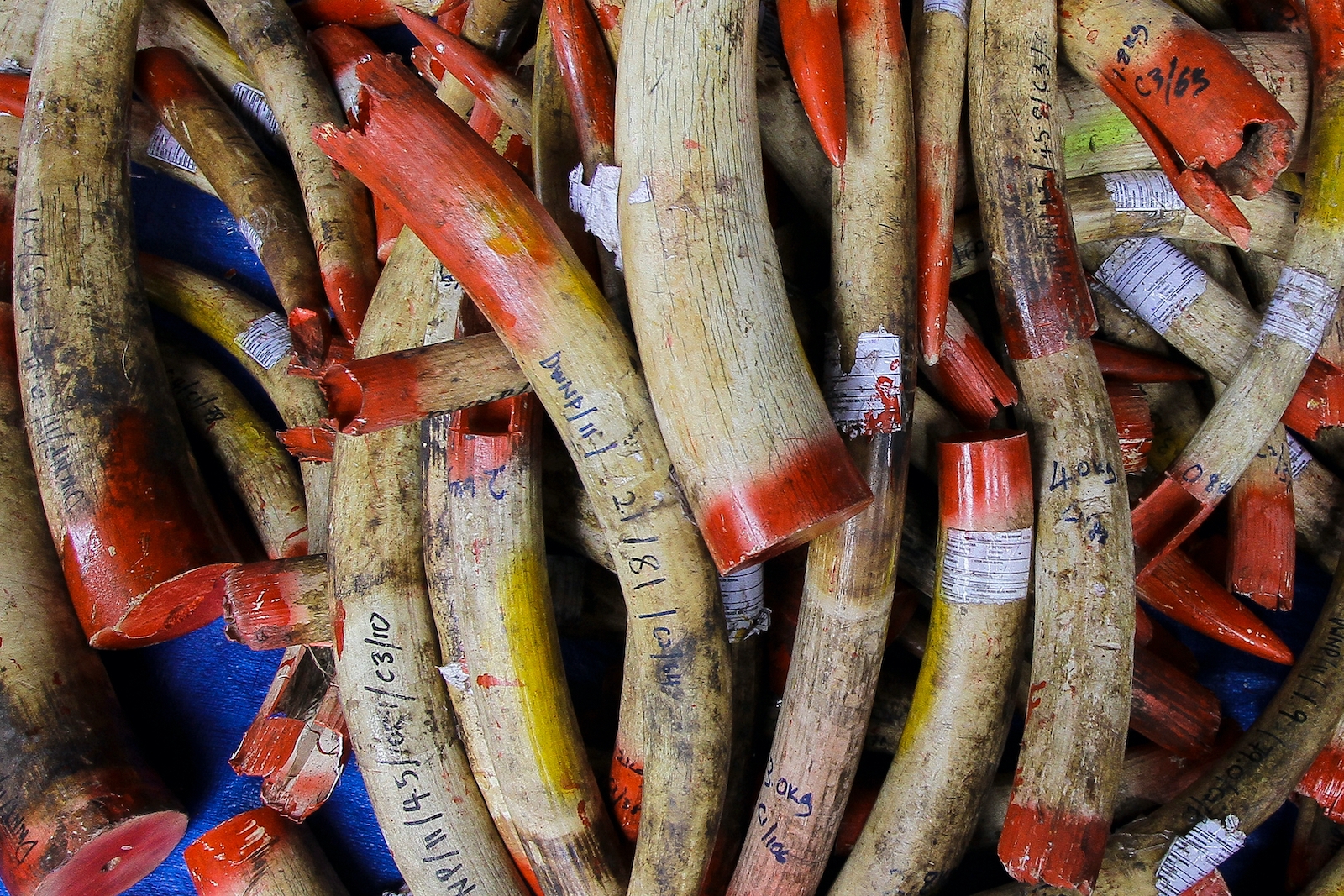
Nine-Year Kenyan Ivory Trafficking Case Ends in Acquittal
In a report from 2021, George Kinoti, the head of the Directorate of Criminal Investigations (DCI), admitted: “Wildlife crime was not initially taken seriously as a major crime.” His counterpart, Noordin Haji, the Director of Public Prosecutions, should echo his remarks.
On February 11th, Chief Magistrate Francis Kyambia ruled in a Mombasa Court, “The prosecution has not met the threshold of establishing a prima facie case,” thereby acquitting three accused of ivory theft. After eight years in court, the testimony of fifteen witnesses, and the repatriation of 1,833 kg of ivory from Singapore to Kenya, the prosecution could not prove its case.
The seizure from which the charges emanate occurred in Singapore in 2013. Singapore officials, on a notification from the Kenya Revenue Authority, seized a 20-foot container concealing 1,833 kg of ivory.
That seizure came barely one week after 3,872 kg of ivory was intercepted at Mombasa Port, and three weeks after 1,300 kg of ivory was discovered in a sea container in Hong Kong having originated from Mombasa. All three shipments were allegedly from the same consignor and processed by the same clearing agent.
Within days, authorities arrested employees of the Kenya Port Authority and the Kenya Revenue Authority relating to the Mombasa seizure. Gideon Naftali Onsinyo Nyangau and James Kassiwa were charged with “bringing into a customs area prohibited goods namely 1,099 pieces of ivory” and “conspiring to bring into a customs area prohibited goods,” both offences under the East Africa Community Customs Management Act.
The charge sheet was amended on February 7th with the addition of the clearing agent Fredrick Sababu Mungule, alleged to have processed the shipment. Mungule was no stranger to the ivory game having been suspected of facilitating a 2,033 kg shipment from Mombasa to Thailand in 2011.
In late August of 2013, the ivory seized in Singapore was back on Kenyan soil. Five weeks later, Mungule, Nyangau, Kassiwa, with the addition of Nelson Ayoo, a KRA employee, were charged again for the Singapore shipment, the charges for which they have been acquitted. It was alleged that Mungule had processed the shipment documentation, Kassiwa and Ayoo had permitted the container into the port, and that Nyangau had manipulated paperwork to permit the loading of the containers onto vessels.
While some ‘curious’ decision-making took place in the early years of this prosecution, it was not until late 2017 that the true colours of the case were unfurled. It was then that Wildlife Direct, founded by Richard Leakey in 2006, decided to put this prosecution under a microscope to monitor. Shortly thereafter, Wildlife Direct’s legal manager was threatened on a busy Mombasa street by an armed man who made it clear that if Wildlife Direct didn’t cease with its interest in the case, he and his family would be in danger. A few months later, his Nairobi residence was broken into by unknown assailants.
From that point forward, the outcome was clearly preordained.
Before the trial came to a close, the prosecution called fifteen witnesses. Two of the witnesses, Musa Jacob Lithare and David Ali had been arrested for their involvement in transporting three containers of ivory into Mombasa Port in 2015. It was subsequently found that they had also been involved in transporting ivory in the very same containers that the accused were transporting ivory in.
Initially, Lithare and Ali were also charged but that changed in 2016. The Office of the Director of Public Prosecutions, on request from the DCI, decided to make Lithare and Ali prosecution witnesses against the accused. During their ensuing testimony, they gave not one piece of evidence against any of the accused.
Of the remaining thirteen witnesses, none could provide any evidence that Mungule had anything to do with the container that was taken into port. In fact, testimony revealed that Denis Maitha accompanied the container into port and paid the appropriate fees. There was never an explanation by investigators as to the identity of Maitha.
None of the thirteen witnesses provided any evidence that Mungule knew Ayoo or Kassiwa (Nyangau had reportedly passed away in 2014) or that they had conspired in any manner. In fact, there was evidence indicating that Nelson Ayoo was not even working on the evening that the container was “gated in” to the port but that he had “authorised use of his lotus credentials” to Kassiwa with the knowledge of his direct supervisor.
As for witnesses that were not called. Any one of three employees of the East Africa Commercial and Shipping Company who provided statements to the police indicating that Fredrick Sababu Mungule was a frequent customer of theirs, had communicated with them and received the bill of lading relating to the container of ivory that went to Singapore.
The worst was yet to come, however, when the lead investigator, Sgt. Lemiso took the stand. This was the time when the prosecution had an opportunity to try and plug the significant holes in their case. Lemiso concluded his testimony within 30 minutes, hardly the time to cover an investigation that spanned two continents and several years. In the ensuing cross-examination, Lemiso provided not one answer that indicated that he had anything but the briefest idea of what the investigation entailed. Most of his responses were one-word answers: “no.” And the last question from defence counsel: “Are you aware of anything relevant to this case?” Facetious but sadly appropriate.
At the time of the acquittal, the prosecution relating to the 3,827 kg Mombasa seizure is waiting on the final judgment from Chief Magistrate Edna Nyaloti. On the positive side, that prosecution did pass the threshold of a ‘prima facie’ case. On the negative side, “external factors” were present, yet again.

